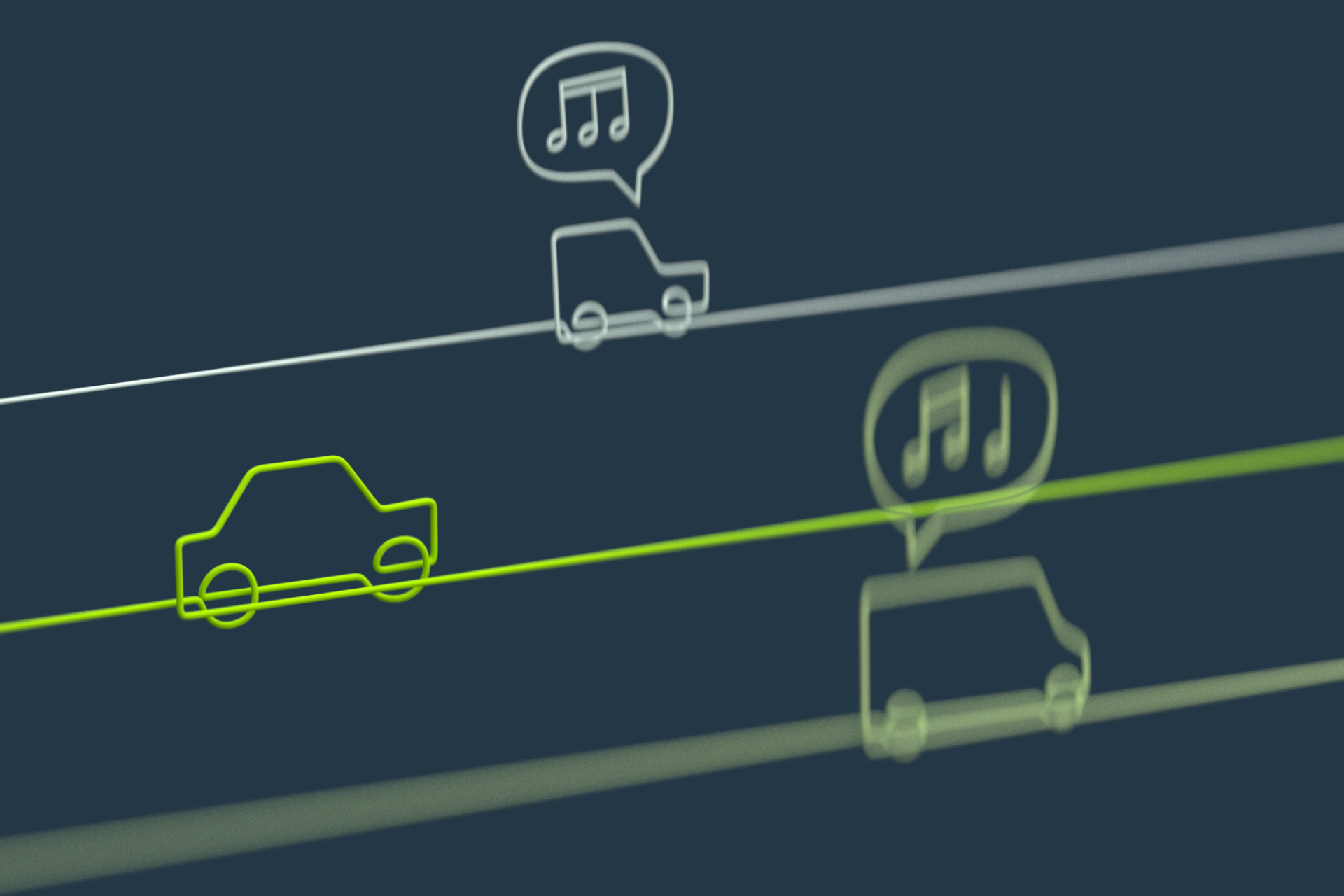How does scent affect your mood and driving?
November 2, 2023
That new car smell.
The “something died in this car” scent.
Or, a classic pine scented air freshener aroma.
All of these smells are likely ones you’ve experienced while driving. And while we hope the search for that something-died-in-here scent is over, have you considered that the aromas in your vehicle are impacting your performance behind the wheel?
It’s time to make “scents” of the subject and show you how smell impacts the brain and how that translates to your behavior while driving.
How do smells affect the brain?
You’ve likely heard of, and are familiar with, the five basic senses—touch, taste, smell, sight and hearing. But did you know that your sense of smell is the most sensitive? It can immediately detect fragrances, invoking an array of responses.
As a powerful sensory stimuli, smells can have a significant impact on the brain
and driving behavior. The olfactory bulb (what’s responsible for your sense of smell) is located in the front of the brain, where your hippocampus and amygdala are located. This area of the brain is where your memories, emotions and behaviors are housed.“More than any other sense, the sense of smell circumnavigates the logical part of the brain.” – RAC Foundation’s consultant psychologist, Conrad King
So when you smell something—pleasant or not—that area is immediately affected and can impact you in a variety of ways.
Research shows that when fragrances hit the olfactory system, it can produce immediate changes to things like blood pressure, muscle tension, pulse rate and brain activity.How does that translate into your driving behavior? Let’s get a good whiff and find out.
Do certain scents contribute to more mindful driving?
We know that stress behind the wheel isn’t ideal. And when you think about what can cause stress while driving, you may not be thinking about the smells inside of your car being a contributing factor.
Published in the Procedia - Social and Behavioral Sciences journal, one study looked into the connection between smells, driving behavior and mood. It concluded that the use of lavender and vanilla scents could lead to a calming effect on drivers.
Enjoy your cup of coffee in the morning? Not only can drinking coffee contribute to more focus while driving, it’s been suggested that the smell itself (a coffee bean aroma) may have stress-relieving functions.
Think about it: When you walk into your favorite local coffee shop, you’re hit with that recognizable, yet comforting aroma of coffee. You feel a little more relaxed, right? The nose knows.
The British RAC Foundation has its own research on the topic and shares which smells can be good for driving:
Cinnamon
Lemon
Peppermint
Live by the ocean? Roll down the window because a blast of salty sea air can encourage deep breathing and help relieve unwanted stress. Be careful driving around with smells of chamomile or jasmine. These aromas are commonly used to encourage relaxation and sleep—something you don’t want to do behind the wheel.
When pleasant scents are used correctly, they can promote safer driving, better mood and improved well-being in angry drivers.
Research has also been done about scents that can have a negative influence on driver behavior. The RAC Foundation study also found that the smell of fast-food, fresh bread or pastries can contribute to irritability and speeding because these smells may make drivers feel hungry and in a hurry to fill their appetites.
No one likes a hangry driver, do they?
We also found that outside scents can influence driver behavior (e.g. air pollution or car exhaust) and may result in increased road rage among drivers.
And before you think having a neutral-smelling car is the way to go, you may want to reconsider. Studies of astronauts found that an odor-less environment can create irritability and even olfactory hallucinations (smelling something that isn’t there).
To counteract these negative feelings or behaviors, you may do what many drivers do: use one of the many methods from scent beads to sprays, to enhance a balanced driving experience. Speaking of which, there are some scents that you don’t want to ignore while driving.
What scents to pay attention to while driving
This is turning into a smelly situation, and we promise we’re almost through! It’s been interesting learning about the science of smell and how it can impact your driving. But we want to leave you with a few scents you definitely don't want to ignore or cover up without investigating first. Here are a few:
Burning carpet smell. Aside from your car being on fire, the smell of burning carpet typically indicates that your brakes are overheating. Best course of action is to safely pull over and allow the brakes to cool before driving further.
Rotten egg smell. This smell may be accompanied by a “check engine” light and can indicate a problem with the emission system’s catalytic converter. Don’t put this smell off—get your vehicle checked by a credible mechanic.
Maple syrup smell. It’s time to check your cooling system. If you notice a sweet, syrupy smell, your cooling system may be leaking coolant or antifreeze. Have your mechanic check for any issues and clean any pooled leaks, as it’s toxic.
This isn’t an end-all-be-all list of warning smells. If you notice or smell something funky (no, not your gym socks that you lost under the back seat), get it checked out ASAP. When in doubt, check it out.
Mindful driving with the senses
We hope you've picked up a few fun facts about your olfactory system and how it connects directly to your performance behind the wheel. At HiRoad, we try to find things you experience every day—like, smelling—and tie it directly to mindfulness.
Mindful driving starts with you (and your nose) and if we can help make your commute more safe and pleasant smelling, then we’re here for it. Let’s get good going with “scent”ational mindful driving with HiRoad.
The information in this article was obtained from various sources not associated with HiRoad®. While we believe it to be reliable and accurate, we do not warrant the accuracy or reliability of the information. HiRoad is not responsible for, and does not endorse or approve, either implicitly or explicitly, the content of any third party sites that might be hyperlinked from this page. The information is not intended to replace manuals, instructions or information provided by a manufacturer or the advice of a qualified professional, or to affect coverage under any applicable insurance policy. These suggestions are not a complete list of every loss control measure. HiRoad makes no guarantees of results from use of this information.
Stay on the path
Get HiRoad in your inbox
Share your email to get the latest about our community of mindful drivers.



